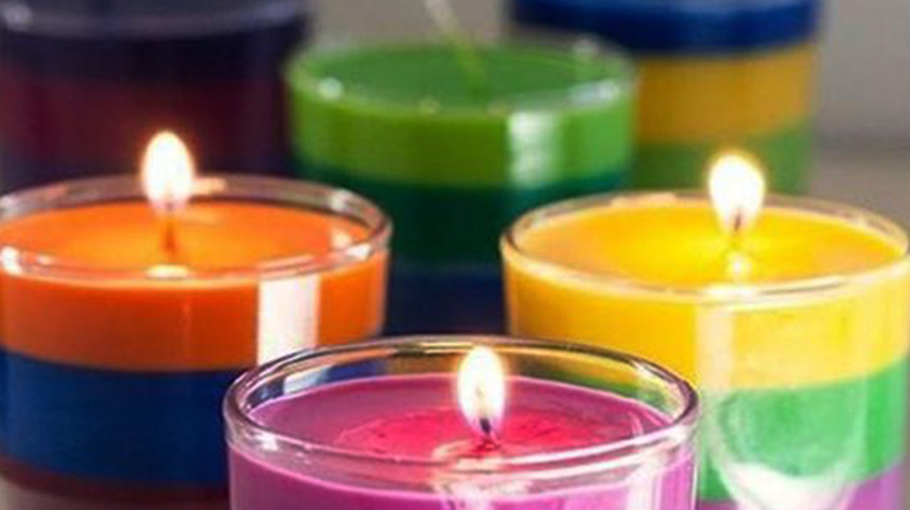This Diwali is a time for collective healing
Festival of lights can be a catalyst for celebration and also open up wounds of despair

This week my editor asked if I wanted to write a piece on Diwali. After an instinctive hmmm … because the last time I wrote about the festival was an essay in school but more importantly because you can’t upset your editor, I ultimately decided to dive in.
As I write this though, I can tell you that he has done me a favour by not just giving me a pass to reminiscence about my childhood and see how it stacks up today, but he has also allowed me to pause and consider the meaning of Diwali beyond the glittering lights.
I grew up in times when the Diwali countdown began with the festival of Dussehra which was thrilling for us as children and not just because it was a school holiday. In my Punjab hometown of Jalandhar, the burning of Ravana in the only main ground worth counting resonated around the small city at dusk every year. Most times you could even smell it.
Those days to step out of the house was to land straight into a mythological era. The busy narrow roads were overtaken by decorated chariots, all heading to one Ram Leela or another.
Children all dressed up in outfits loaned from the same tiny nondescript shop sat with their legs dangling, a cheeky grin of self- importance on their faces. The men- from Lord Rama to Hanuman, barely kept their shining crowns on their head but looked as though just for a day they believed in themselves.
At home, the sweets and the gifts would start pouring in days before the festival. The morning of Diwali had a vibe that is hard to explain but even now I know it intimately although it is only in recent years that I realised it is more about being a way that a family appropriates as their own. Perhaps it is also about passing on the torch to the children- to help them glimpse the charm of my childhood while still allowing the child in me to come out for a yearly glimpse. That is the comfort of the parents’ home.
Our bungalow has a sweeping view of the scanty houses in the neighbourhood- we are still fortunate to be surrounded by openness with tall eucalyptus trees that shield and sway. As autumn gave way to the first scent of winter, with candles in our hands every year on a late Diwali evening we took the cemented stairs to the terrace.
In a world on steroids
The twinkling candles across the sprawling roof seen from the winding driveway always had a serenity that I continue to search for in a world on steroids! It is amazing though how even tiny gestures of childhood are more deeply ingrained in us than we realise.
The day would end with my grandmother writing a diary chronicling the family’s year. From my father’s first squiggly handwriting to hardly a masterpiece by his eldest grandchild, the fraying papers are a family jewel, and my father keeps that tradition alive reading it to those of us not home on Diwali, on a video call.
This Diwali thousands of families
are left with just memories.
We have lost so many who
wanted to live, those who
should have lived
Then we flew the nest, and the festival became all about returning to the fold, of coming home. The sweets- I take a gulab jamun over a chocolate any day-were always waiting and the day remains a celebration of belonging. It is a privilege of small- town India- their sights and sounds on a festival effortlessly reimagine the colours of life, one image in slow motion at a time. I still see kites flying in the Jalandhar sky and hope that despite our big city existence now, I can help my children make their own reel.
So, with the nostalgia there is also a tip- dismiss it as a sign of maturing or at least greying- look out for beautiful interludes that seep in unknowingly while we are too busy trying to catch a falling star. It is in the belief that celebrating each other’s happiness across faiths makes no one small or that the choice to view from a prism is ours- hate or inherent goodness.
Diyas in my home burning bright
Some say I live in the past, I would like to think I believe in the future and Diwali for me is a timely reminder of all that makes me, it is what allows the diyas in my home to burn bright.
Ask those families who are not lighting one this year and they will tell you, the darkness within is self- defeating.
This Diwali thousands of families are left with just memories. We have lost so many who wanted to live, those who should have lived.
Festivals allow for parallel existence, on one side are those looking to celebrate after yet another trying year while on the other hand, Diwali brings out deep loss and could be a catalyst for opening up wounds of naked grief and despair. The tragedy that unfolded earlier this year has wiped out the magic, instead many homes will be silent.
So, as the bitter-sweet day dawns and our homes are glowing, light a candle for those who didn’t make it. And one for those who had to grow up before their time, perhaps losing their inner child forever. This time Diwali is also about collective healing.
Jyotsna Mohan is the author of the investigative book 'Stoned, Shamed, Depressed'.
She was also a journalist with NDTV for 15 years




